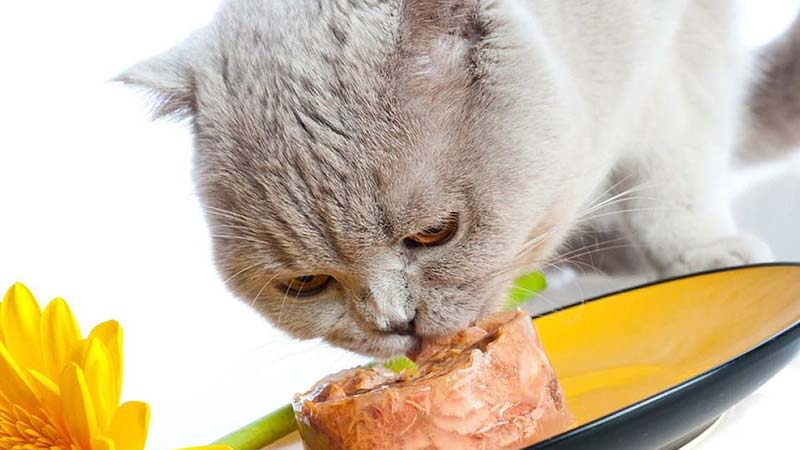Exploring the Debate: Is Fresh Food Better for Cats?

The debate surrounding the optimal diet for our feline companions has intensified in recent years. Amidst this conversation, one question stands out prominently: Is feeding cats fresh food better than commercially processed alternatives? Understanding the nuances and considering various aspects is key to unraveling this complex topic.
The Case for Fresh Food
Nutritional Superiority
Fresh food, often consisting of raw or home-cooked meals, offers distinct nutritional advantages. It provides cats with high-quality animal protein sources that are essential for their health. These proteins contain amino acids and taurine crucial for muscle development, organ function, and overall vitality. In comparison, processed commercial diets might contain lower-quality proteins and higher levels of carbohydrates or fillers.
Hydration and Moisture Content
Cats, by nature, have a low thirst drive. Fresh food, especially wet or raw diets, contains higher moisture content, aiding in hydration. Adequate hydration contributes significantly to urinary health and helps prevent issues like urinary tract infections or kidney problems, common in cats on dry kibble diets.
Minimized Additives and Preservatives
Fresh diets generally lack the artificial colors, preservatives, and additives commonly found in commercial cat food. Reducing exposure to these substances minimizes the risk of allergies, digestive problems, and other health issues that might arise from consuming processed food.
Digestive Health and Digestibility
Fresh diets tend to be easier on a cat's digestive system. Cats often experience sensitive stomachs, vomiting, or diarrhea due to intolerances or allergies to certain ingredients found in processed food. Fresh food, being closer to their natural diet, is more easily digestible and can alleviate these issues.
Potential Challenges and Considerations
Bacterial Contamination
Raw food diets, in particular, pose a risk of bacterial contamination. Improper handling or storage of raw meat can lead to bacterial infections not only in cats but also pose health hazards to humans handling the food. Maintaining strict hygiene practices is crucial when opting for raw diets.
Nutritional Balance and Expert Guidance
Achieving a well-balanced diet for cats requires careful planning and expertise. Simply offering raw or home-cooked meals might not ensure the necessary balance of nutrients. Consulting a veterinarian or a feline nutritionist is crucial to formulate a diet tailored to a cat's specific needs based on age, health, and activity levels.
Transition and Acceptance
Cats can be resistant to sudden dietary changes. Transitioning from processed to fresh food should be gradual to avoid digestive upset. Mixing small amounts of fresh food with their existing diet and slowly increasing the proportion over time helps cats adjust to the new flavors and textures.
Cost and Accessibility
Feeding cats a fresh diet, especially a raw or home-cooked one, can be more expensive than commercial alternatives. Moreover, sourcing high-quality ingredients consistently might be challenging in certain areas, making it less accessible for some cat owners.
Conclusion: A Balanced Approach
The debate between fresh and processed cat food isn't easily settled. Each approach has its merits and challenges. Ultimately, the ideal diet for a cat depends on various factors, including the individual cat's health, preferences, and the owner's capacity to provide and manage a fresh food diet.
Striking a balance between the advantages of fresh food and the practical considerations is often the key. It might involve a combination of both fresh and high-quality commercial food or a well-formulated homemade diet supplemented with expert advice.
Caring for our feline companions involves making informed choices that prioritize their health and well-being. Whether it's fresh, commercial, or a blend of both, the goal remains the same: to ensure our beloved cats receive the best nutrition suited to their individual needs.
You May Also Like
 Cat Nutrition & FoodKitten Food vs. Senior Cat Food: What You Need to Know!
Cat Nutrition & FoodKitten Food vs. Senior Cat Food: What You Need to Know! Cat Nutrition & FoodHow Many Times Should A Cat Eat Wet Food A Day?
Cat Nutrition & FoodHow Many Times Should A Cat Eat Wet Food A Day? Cat Nutrition & Food10 Kinds of Human Food That Are Good for Cats
Cat Nutrition & Food10 Kinds of Human Food That Are Good for Cats Cat HealthCan Cats Eat Chocolate? The Answer Is An Emphatic "No!"
Cat HealthCan Cats Eat Chocolate? The Answer Is An Emphatic "No!" Cat Nutrition & FoodKitten Food vs. Cat Food: What's the Difference?
Cat Nutrition & FoodKitten Food vs. Cat Food: What's the Difference? Cat HealthHow Much Thiamine Does A Cat Need Per Day?
Cat HealthHow Much Thiamine Does A Cat Need Per Day?